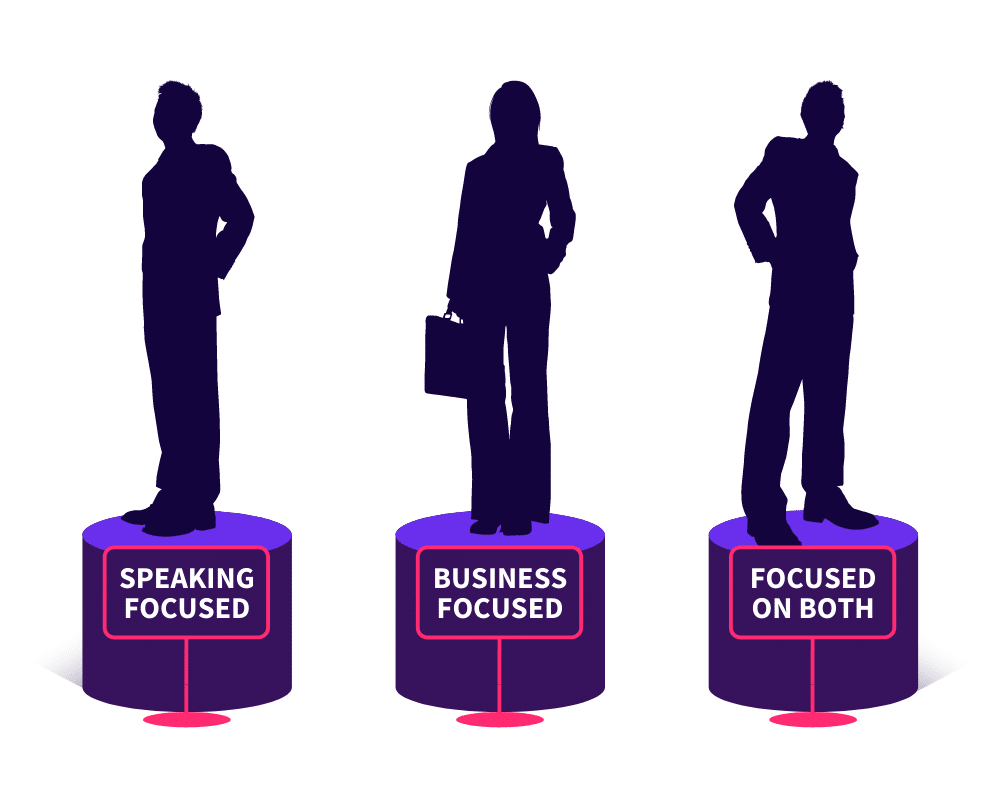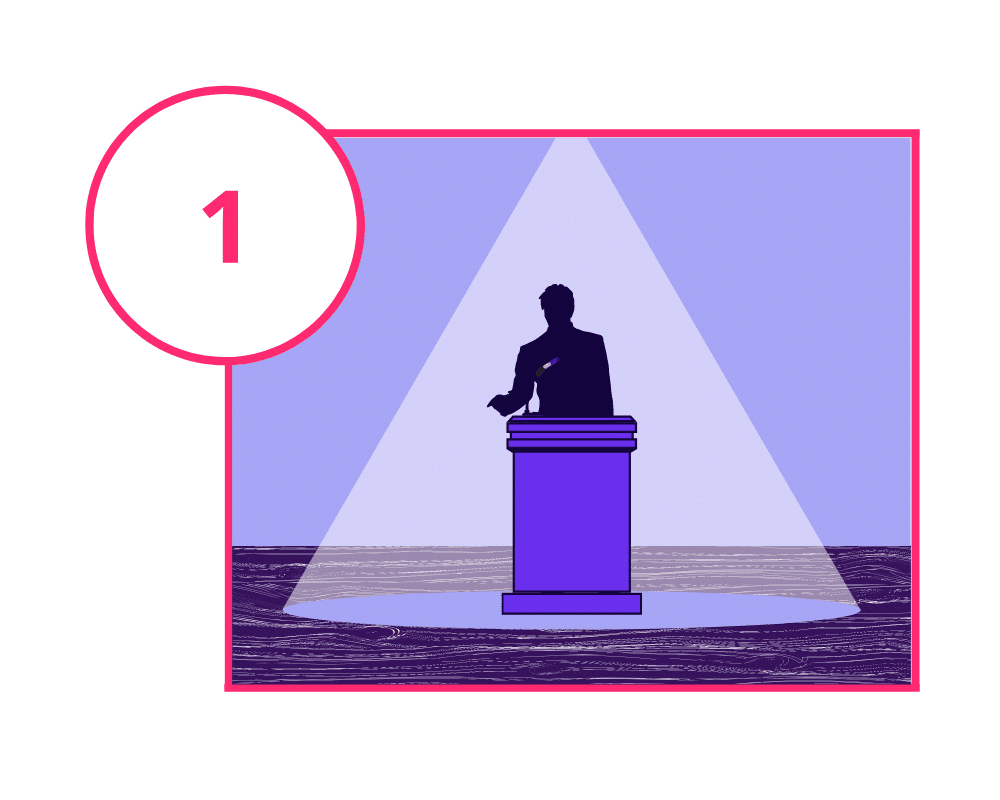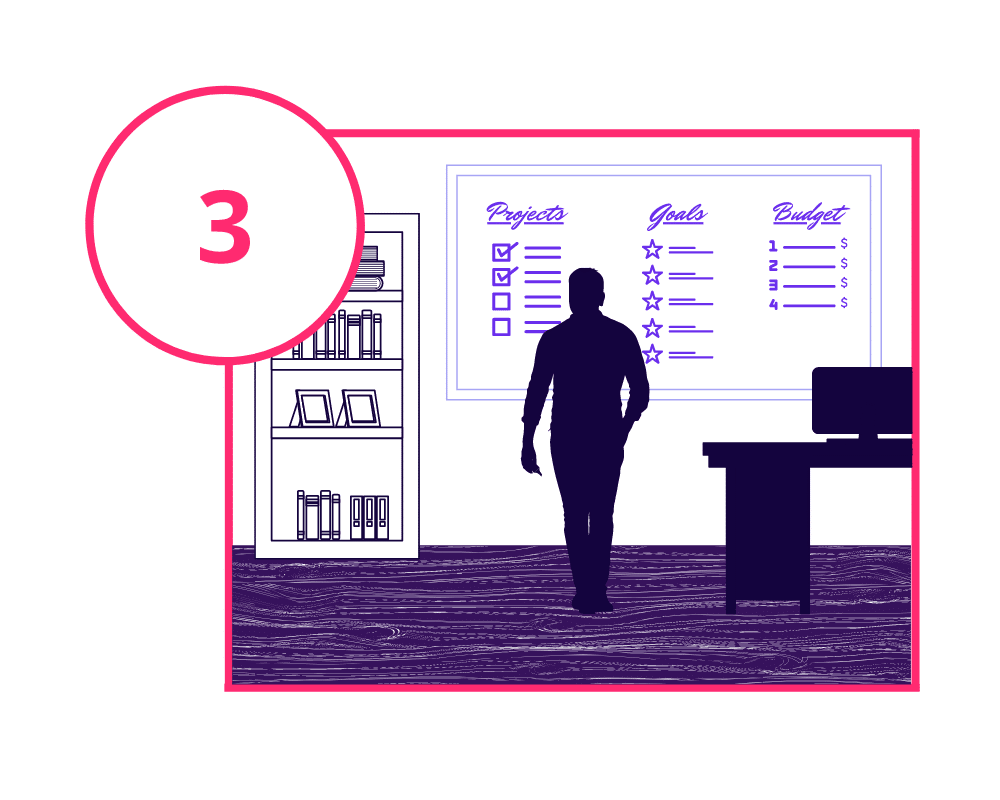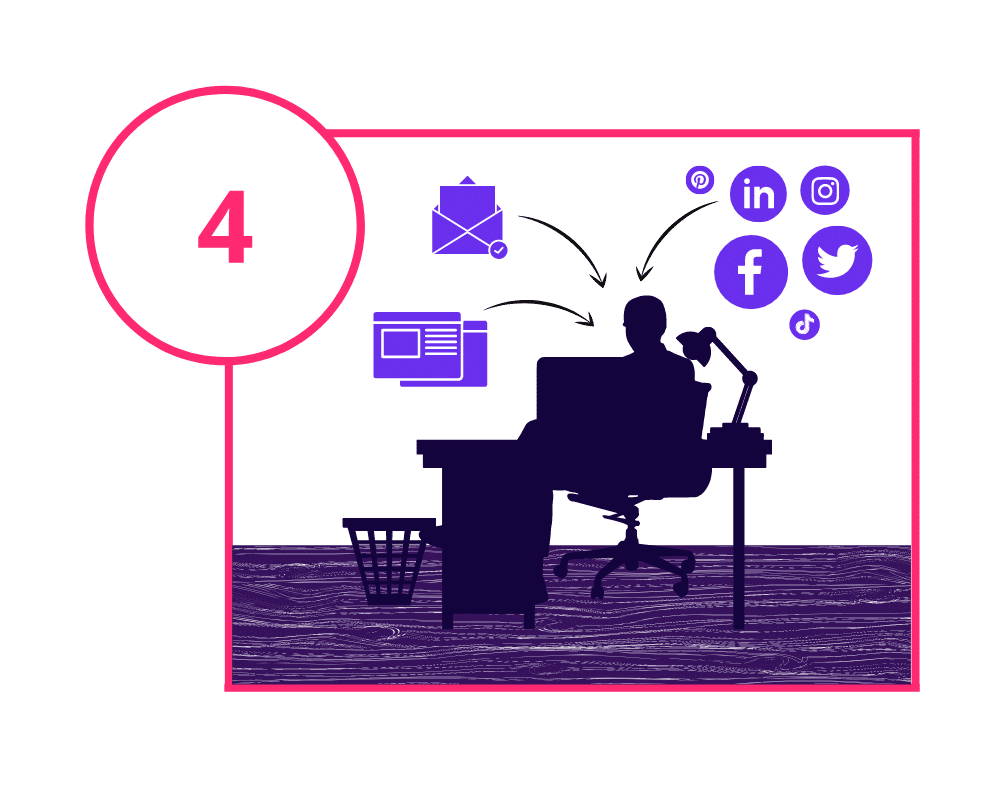If you’re like me, the phrase “Many hands make light work” was a common saying around your household growing up. Whether you were cooking, cleaning, or running errands, the idea was to divide the work among many people and, in doing so, make it easier for everyone. However, over the last several decades, technology has stepped up to take the place of those “many hands.” Where we used to hire an expert, now we might instead buy a digital tool, essentially achieving the same result for a fraction of the cost. In the speaking industry specifically, one area has felt this shift increasingly over the last few years: speaker coaching.
Although there are undeniable benefits to hiring a speaker coach, there are also, in many cases, opportunities to take on the work of a coach yourself. Considering these opportunities – and the money you can save by taking them – in this guide, we’re going to outline how to take speaker coaching into your own hands. That way, if you’re most comfortable when you’re learning on your own, you’ll have direction and resources to help you hit the ground running.
Before we begin, please note that this article isn’t intended to downplay the importance of speaker coaching. As coaches ourselves, the whole SpeakerFlow team knows firsthand that a coach’s advice can make a world of difference (and be 100% worth the cost).
With that in mind, I hope this guide helps you hold your own as long as you feel comfortable. After that, we’ll be here to help you keep the momentum going. 🙂
The Three Types of Speaker Coaching
To begin, if you haven’t heard of speaker coaching before, you’re probably wondering, “What does a speaker coach do?” In simple terms, a speaker coach is an advisor for your speaking business, and, in many cases, they entered the industry as speakers themselves. Their goal is to provide you with a fresh perspective of your current processes, speaking collateral, and strategies and, by extension, help you turn your speaking business into a well-oiled machine.

Generally, speaker coaches approach these goals through one of three lenses. The first lens, or “type” of speaker coaching focuses more on your stagecraft than your day-to-day operations. This coaching is ideal if you’re business savvy but new to the stage or if you’re working to overcome a fear of public speaking. Conversely, the second type of speaker coaching focuses more on the “business” aspect of the term “speaking business.” As you might have guessed, this coaching is best for speakers that are confident in their stage presence but uncertain when it comes to running a business. It’s also a good bet if you have speaking experience and plan to scale, as you can’t hand off aspects of your business until you’ve first mastered them yourself.
Lastly, the third type combines these two areas of focus to provide guidance related to both speaking and entrepreneurship. Consequently, if you’re new to both of these areas, and want a hand to hold as you grow, this is the route to take.
Depending on your own experience, one of these types of coaching may be more appealing than the others. However, regardless of preference, any coaching will be most effective when you’ve first reached the limits of what you can do on your own. After all, experience is the best teacher.
The Cost of Speaker Coaching
Besides the effectiveness of coaching, it’s also important to be mindful of cost. As mentioned previously, depending on the depth of the assistance you’re looking for, hiring a speaker coach can come at a hefty price. If you’re thinking, “I’m not worried!” keep in mind that, currently, this price ranges from a few hundred dollars an hour to a few thousand dollars for a contracted relationship. This is especially true if you’re looking for stage presence and business advice or if the strategy through your coach comes with add-on projects.
For example, one common recommendation speaker coaching clients hear is “Update your website.” Maybe its design is outdated, its security is questionable, or it doesn’t provide the right information for event organizers. Either way, in any of these cases, if you don’t know how to solve the problem yourself (or if you simply don’t have the time to learn), that initial recommendation to update your website is actually a whole new project. In short, your final bill isn’t simply the cost of the speaker coaching. It’s also the cost of updated website plugins, a web designer, and the countless other tools required to refresh a website.
Nevertheless, as scary as this may sound, many of the projects that come along with speaker coaching are also projects you can handle on your own. It’s not necessarily easy, but, by learning to manage and optimize your speaking business yourself, you not only gain an invaluable understanding of how to ensure it grows. You also learn the basics of growing a speaking business without the cost of a coach. That way, when you do hire a coach or join a coaching community, you can skip right to the good stuff and make the most of your money.
How To Take Speaker Coaching Into Your Own Hands
Looking back on the “Many hands make light work” saying, managing a speaking business may seem like a lot of work, and it definitely is. However, learning to master that work yourself comes with a myriad of benefits, as a thought leader and a business owner. Plus, there’s a growing amount of free and paid resources available to help you grow. Below are some of these resources as well as the four main areas to target as you to start your journey into “self-coaching.” 👇
Solidify Your Stage Presence

First up is, arguably, the biggest component of your speaking business: your speaking skills! Commanding the stage as a professional speaker means not only motivating your audience but also explaining new ideas and innovative solutions to their problems. Consequently, each presentation should be energetic, confident, and memorable. It should also be packed with useful information your audience can take with them after the event is over. This allows your client to expand the impact of your speech, and it allows you to, hopefully, inspire your audience to action. Win, win!
Recommend Resources
- 12 Features Of The Most Impactful Virtual Keynotes
- How To Overcome Your Fear Of Public Speaking In 8 Steps
- Afraid Of Public Speaking? 7 Strategies To Help You Get Over It
- The Secret To Becoming A Better Speaker? Write More.
- Make Them Laugh: How To Generate Humor From More Angles Of Your Talk
Sharpen Your Sales Processes

The second area to improve is your sales processes. As far as industries go, the speaking industry is unique in that no two speakers are exactly alike, as part of what makes you hireable is…well, you! Because of that, sales, as a speaker, depends not just on consistently reaching out to event organizers but also leaning into your individuality. Ask yourself, “What makes me unique in my area of expertise?” and “What problem(s) is my audience facing that I have experience solving?” Then, as you contact event planners, use these answers in your sales strategies. Remember, your presentations are meant, above all, to serve your clients and help them address their challenges. If you can meet that requirement, mastering the rest of your sales strategy is just a matter of practice and patience.
Recommend Resources
- How To Get Speaking Gigs: The Ultimate Guide
- 7 Steps To Take If You Want To Charge Higher Speaking Fees
- Where To Find Speaking Engagements: The Complete List
- Speaker Intel Engine: The Only Tool You Need to Find High-Paying Speaking Gigs
Streamline Your Operations

Next, if you want your speaking business to run smoothly, you also have to streamline your day-to-day tasks and processes. These include your customer relationship management system (CRM), your project manager, your finances – basically, everything that you need to operate your business legally and systematically. For many speakers, this area of their business is the most tedious and time-consuming. However, if you put in the time, initially, to set up your operational processes correctly, it will save you time, money, and an unbelievable amount of stress in the long run, guaranteed.
Recommend Resources
- How To Start A Speaking Business: The Ultimate Guide
- CRMs For Speakers: The Beginner’s Guide
- Speaker Revenue Calculator
- Systems To Help Scale Your Speaking Business
Strengthen Your Marketing Methods

Lastly, once the speaking, sales, and operations areas of your business are in order, all that’s left to is marketing. Whether it’s through social media, blog content, or a podcast, this area of your speaking business is the glue that holds the rest of it together. It’s also the final piece of the “feedback loop” that makes up a successful speaking business. After all, every sale can be shared through marketing which can then attract new clients and create new sales opportunities. It might be a decent amount of work, but the rewards only compound over time.
Recommend Resources
- How To Leverage Pipeline Marketing In Your Speaking Business
- How To Market Yourself As A Speaker: The Ultimate Guide
- The Basics Of Multi-Channel Marketing For Speaking Business Owners
- How Speakers Can Best Use Technology in a Chaotic Climate
- How SEO Can Grow Your Speaking Business
To summarize, speaker coaching can be a useful way to gain insights about the way you run your speaking business and the way you run the stage. However, to make the most of a coaching contact or session, the greatest thing you can do beforehand is stretch the limits of your own skills. If your sales are down, read up on sales strategies, and test out some new tactics. If your brand needs refreshing, talk to a freelancer to see how they can help.
In the end, you entered the speaking industry because you had the drive to make a difference. Likewise, in your speaking business, that drive can take you far, as long as you trust your ability to learn and make the most of the tools available. As a relatively new addition to the industry, take it from us at SpeakerFlow. If we can dive in headfirst and manage to grow in the toughest of times, you can, too. 💓





